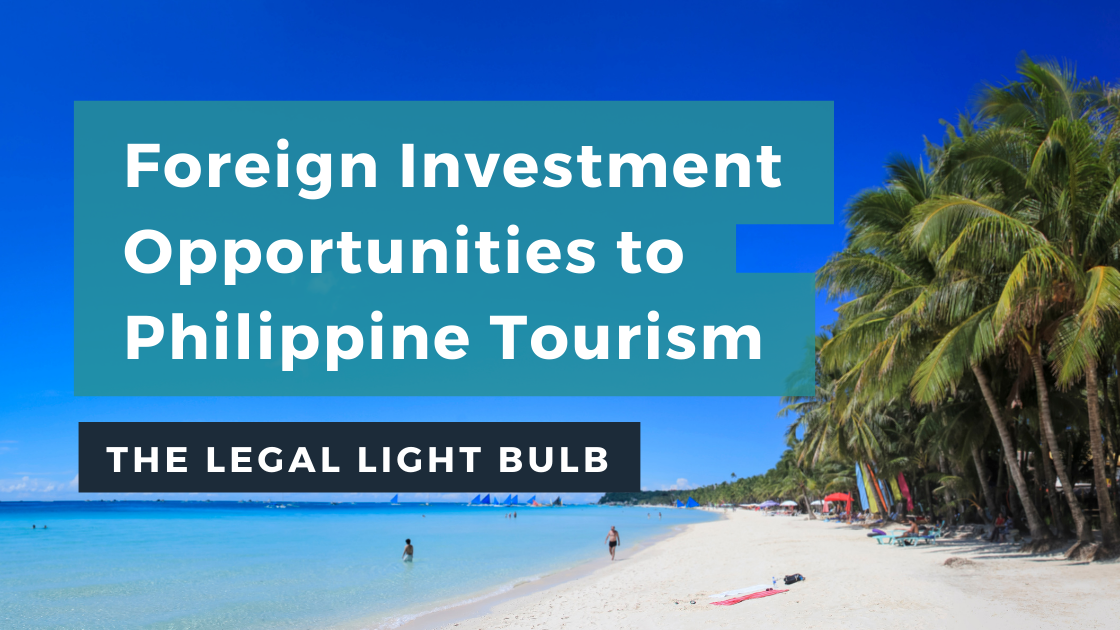Philippines, a Prime Tourist Destination
The Philippines is a country abundant in biodiversity, natural resources, and scenic destinations. Among these tourist attractions are Boracay’s white sand beaches, Palawan’s underground river, Siargao’s surf scene, Cagayan Valley’s caves, Bicol’s perfect cone-shaped Mayon volcano, and Ifugao’s rice terraces. Aside from magnificent tourist destinations, the Philippines also boasts a rich cultural history due to its hundreds of years of colonization. It has become a melting pot of Oriental and Western cultures.
In the recently concluded Tourism Stakeholders’ Summit, Tourism Secretary Christina Garcia-Frasco (“Secretary Garcia-Frasco”) revealed that the Philippines had recorded 1.15 million international tourist arrivals in the first quarter of the year. The Tourism Secretary stated that with these figures, they are confident that their target international tourist arrivals will be exceeded. The Tourism Secretary also unveiled the Department of Tourism’s National Tourism Development Plan for the years 2023 to 2028, which is geared to attain President Ferdinand Marcos Jr.’s vision to transform the Philippine tourism industry into a tourism powerhouse in Asia. According to the Philippine Statistics Authority, tourism investment from both the private and public sectors reached Php 663.2 billion in 2019.[1]
Tourism Investment Opportunities
The Department of Tourism’s website lists a number of tourism investment opportunities and tourism industries products available for Filipino citizens and foreign nationals alike – such as markets for consumer goods, production facilities, telecommunications industry, transportation, banking, retail trades, construction enterprises, information and communications technology, beaches and resorts, golf courses, urban attractions, cruises, and yachting and marinas.[2] The prime locations for these investment opportunities are Palawan, Vigan, Banaue Rice Terraces, Boracay, Cebu, Davao, and Manila.[3]
While it is true that aliens, whether individuals or corporations are disqualified from acquiring lands in the Philippines,[4] there are recognized exceptions to the prohibition. These are acquisition through hereditary succession and acquisition by natural-born Filipinos who lost their Filipino citizenship.
As an alternative, however, foreign nationals who do not qualify under the exceptions and are looking to acquire lands in the Philippines may do so through investing in domestic corporations with at least sixty percent (60%) Filipino equity. This way, foreign nationals can acquire lands through the corporation. Despite the availability of this alternative way of acquisition of land by foreign nationals, there are still intricacies in the processes that require the aid of business registration lawyers and company registration lawyers in the Philippines.
Nevertheless, due to the liberalization of the Foreign Investment Act, foreign investors are allowed to invest as much as one hundred percent (100%) equity in domestic market enterprises not included in the negative list.[5] Furthermore, in accordance with the Investor’s Lease Act, any foreign investor investing in the Philippines is allowed to lease private lands for a total of seventy-five (75) years, provided that no lease contract shall be for a period exceeding fifty (50) years, renewable once for a period of not more than twenty-five (25) years and that the leased area shall be used solely for the purpose of the investment.[6]
A recent trend in lodging facilities is the use of accommodation booking websites instead of booking hotel rooms the conventional way. Foreign nationals have been investing through this scheme by purchasing condominium units in popular tourist locations and having them rented out by guests through various websites. This is made possible by the Philippine Condominium Act, which provides that foreigners may own condominium units so long as sixty percent (60%) of the building is owned by Filipino citizens.
The Time to Invest is Now
According to Secretary Garcia-Frasco, the momentum for recovery and growth has begun. The Philippines have eased restrictions and have continued to aggressively promote our destinations through the Department of Tourism’s constant and unyielding presence in various exhibits in the Philippines and all over the world. In addition, people are traveling now, and are traveling with a vengeance.[7]
These recent developments and the above-mentioned figures show that Philippine tourism is thriving and is in fact growing at a very fast pace, thus making now the best time to invest in this industry. Also, with the recent technological advancements in the legal system, earning through these Philippine tourism investment opportunities is now within reach even for foreign nationals residing abroad, simply through online lawyer consultations.
For foreign nationals interested in taking advantage of the Philippines’ flourishing tourism scene, it is best to consult with the top corporate lawyers from the top law firms in the Philippines and retain one of the best business registration lawyers to maximize investments and protect rights.
Written by: Atty. Sofia Brondial
[1] https://www.pna.gov.ph/articles/1109922
[2] https://beta.tourism.gov.ph/tourism-industries-products/
[3] https://beta.tourism.gov.ph/doing-business/
[4] Section 5 and Section 7, Article XII of the 1987 Philippine Constitution; Philip Mathews vs. Benjamin Taylor, G.R. No. 164584, 22 June 2009.
[5] Section 2, Republic Act No. 7042.
[6] Section 4, Republic Act No. 7652.
[7] https://www.philstar.com/headlines/2023/03/17/2252439/govt-eyes-making-philippines-tourism-powerhouse-ntdp-2023-2028





